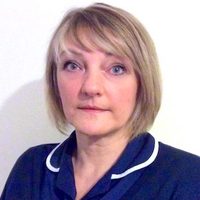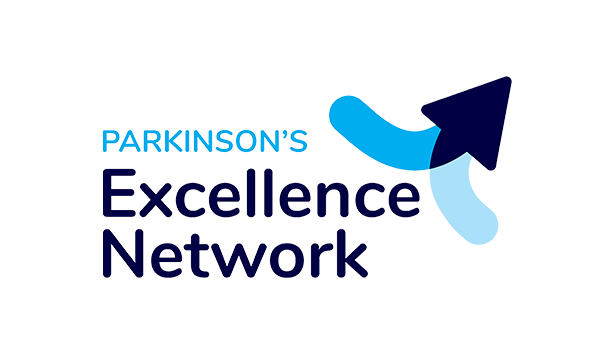Before you watch this webinar
Enhancing your learning experience begins with understanding you better. Collecting data enables us to tailor our educational content specifically for our audience. Discover more about how we handle your information in our Privacy Policy.
Event
#PDCovid19 Nurse Q&A
Our sponsor

This activity has been supported by sponsorship from and Bial. The sponsor has had no control over the educational content of this activity.
Topics
- Telephone consultations, guidance on how to conduct a safe and effective call
- Video consultations – benefits and challenges (and not just with the IT!)
- Motivational questions – getting the most out of your remote consultation
- Top challenging topics patients are discussing and how to them manage remotely
- Hot topics
Summary
Through four presentations and answering questions, the panel offered some practical advice on delivering services in the remote world of COVID-19.
Conducting a safe and effective telephone clinic. (2:35)
“Telephone clinics are considered the safest and only real option for monitoring and keeping in touch with our patients,” said Jane Price.
Her tips included:
- Prepare the location of your telephone clinic: Do you have everything to hand that you will need? Is the location secure in relation to privacy and confidentiality? Are you likely to be distracted? Should you put a “do not disturb” notice on the door? If working from home, can you ensure you do not divulge your home phone number?
- Make sure patients are prepared: Jane has developed a telephone consultation check list that is sent to patients ahead of the appointment (see below). It advises them to think about what they might want to discuss, tells them how long the appointment is, and that additional time can be scheduled if needed.
- Have a printout of the clinic list with everyone’s phone numbers in front of you before you start. This will help you make sure you are calling the right person at the right time and help with the flow.
- Think about the purpose of your call. Using a telephone consultation proforma (see below for an example) can help nurses to tease out the most pertinent issues and ensure the patient’s priorities are addressed.
- Be aware of the limitations of phone consultations and that you might be missing out on non-verbal clues and signs of not coping, and may receive a subjective report on movement issues. Active listening is vital.
- Evaluation is crucial. Record activity for data analysis and use this to continually improve the service. What is working well and what might benefit from changing?
Do you ask the patient to prepare a list of questions they want to cover? (19:21)
Jane said: “Yes, that is included on the checklist I send out before the consultation.”
Are you sending patients a self-evaluation questionnaire as a way of auditing the phone clinic? (19:53)
Jane said she hadn’t done that yet, as it’s “all a little overwhelming for people at the moment”, but she has been asking evaluation questions, and recording the answers, at the end of each call.
Motivational interviewing (20:51)
Motivational interviewing is a validated method of working with people with long-term conditions to achieve their goals.
Patsy Cotton said the patient-centred approach could be useful during phone consultations because it can facilitate active listening, increase engagement, and result in joint decision making.
To start using motivational interviewing techniques during phone consultations, healthcare professionals can follow the “OARS” acronym, she said:
- O = open. Ask open questions that invite people to tell their story. E.g. ‘How can I help?’, ‘What is your understanding of taking your medication on time?’
- A = affirm. Recognise the person’s strength and resilience. E.g. ‘I know it’s difficult to speak about X, Y or Z, and I appreciate your honesty.’
- R = reflect. Reflection statements prove to the patient that you are listening. E.g .‘So, what you are saying is that you are worried about X because of Y.’
- S = summarise. Summarising what you have heard shows you’ve been listening, reemphasises important things, and allows patients to focus on the opportunity to change things
Overall, motivational interviewing techniques can result in a better assessment, greater understanding, less defensiveness or resistance, and better patient satisfaction, said Patsy.
Video consultations (28:55)
Alison Leake shared her experiences of, and what she had learned from, conducting video consultations over the previous few weeks. She said:
always check that patients have the technology to access a video consultation, and are happy to do so
- prepare for the consultation using a checklist – consider the need for scales/instruments and how these will be incorporated into a virtual consultation.
- check you understand how to use the technology before starting a consultation.
- gaining consent and ensuring confidentiality are paramount.
- consider how documentation and letters will be generated and shared.
- consider patient suitability for video consultations in terms of things like cognitive impairment, language, hearing, and any concerns around mental health.
Alison also spoke of the benefits of a video consultation versus a telephone appointment, such as helping to ease social isolation and the better evaluation of symptoms.
How are we prioritising patients for remote consultations? (44:03)
The panel agreed that they had identified the most complex and vulnerable patients, including those who lived alone, and offered them the opportunity to have a remote appointment.
Are you finding patients more willing to take calls and use video technology? (46:15)
The panel agreed that this was indeed the case, particularly as people had become more used to such methods of communicating with friends and family during the pandemic.
The challenges of telephone consultations: A nursing perspective (49:08)
Louise Ebenezer highlighted some of the common challenges of telephone consultations, and how to overcome them. She said:
- issue a password to ensure you are talking to the right person
- be aware that consultations can take longer over the phone as it can more time to “dig down” into issues
- make the most of assets including your IT support team, and communication methods such as secure, email or patient portals (eg: Patient Knows Best)
- use support and admin staff wherever possible to maximise clinical time
- video consultation is more useful than telephone in terms of:
- spotting non-verbal communication assessing motor symptoms
- working with new patients
- ensuring patients understand what has been said
- Virtual consultations give nurses the chance to pick up on things that might otherwise get missed during lockdown, such as increased cognitive impairment and abusive relationships
- Healthcare professionals can work with other organisations, such as charity and care sectors, to make sure people are getting the support they need
- It is challenging, she said, but healthcare professionals can manage people over virtual consultation by checking medications, questioning new or worsening symptoms, and recognising end of life
In extreme cases, would you consider visiting patients at home? (1:05:24)
While the panel had all been told not to visit patients, almost all were currently working on proposals or protocols that would allow them to in the very near future.
“Realistically, life goes on… I think we need to consider the risks, reduce them as mush as possible, and continue to do the things we need to do,” said Jane.
Louise added: “We have a caseload that is aging with a disease that will progress over these next few months, so we do need to see some of them face to face.”
Now that we are all planning our exit strategy, how are you planning to re-book patients? What criteria are you using? Or are you going back to previous booking lists?
Jane Price
Speaking from a Wales perspective, we have heard nothing yet to suggest that the movement clinics can return to a face to face format in the near future. I think it would be fair to say that plans are being made for an easing of restrictions that enables those clinics that cannot operate remotely to restart while still maintaining the strictest safety measures needed. I anticipate that these will include expanding the eye clinics that have continued and for example the cancer and bowel clinics. It could well be that clinic slots will need to be extended to allow consultation room preparation and limit patients overlap time in the waiting area, and this will impact on the number that can be invited back.
Patients have continued to be booked into Movement disorder clinics and these will then revert to face to face as restrictions permit. The people that would have needed urgent review would have been receiving one by phone so they would be captured anyway.
I believe we also have to factor into this patient choice, and their fears as restrictions ease, in relation to when they will want to return. In addition to this there will also be transport issues (and all the anticipated restrictions expected with public transport) which will affect how they get to clinic.
Louise Ebenezer
Currently we are still only reviewing patients either by telephone calls or video link. They are being rebooked as if it a face to face clinic appointment.
There are plans in place for the ‘new normal’, however long term conditions have not yet been addressed. We have meetings in place to scope the future and new way of working in the coming weeks.
Patsy Cotton
Once we are given the go ahead to exit. I am currently listing PwP that I feel need to be seen as soon as possible. (Face to face)
All my clinics are booked for 5 months so I plan to phone and ask the preferred option telephone consultation/video link/or outpatient appointment. This will offer PwP choice and hopefully enhance self-management and take control.
Going forward this tele medicine will help patients and family members taking time off work to attend clinics and will allow me to consider evening clinics if required/requested. Re-book currently no change assessment at end of consultation in agreement with patient.
Resources
Telephone clinic information
By Jane Price
Parkinson’s isolation checklist
By Jane Price
Protocol for home visits
By Louise Ebenezer
Presentation slides
Jane's slides
Patsy's slides
Alison's slides
Louise's slides
Were you registered on this course?
Log in to access resources..
LoginOur sponsor

This activity has been supported by sponsorship from and Bial. The sponsor has had no control over the educational content of this activity.
Speakers
 Prof Annette Hand
Prof Annette HandProfessor of nursing – clinical academic, Northumbria University
 Louise Ebenezer
Louise EbenezerClinical nurse specialist for Parkinson’s disease, Cwm Taf Morgannwg University Health Board
 Patsy Cotton
Patsy CottonAdvanced Nurse Practitioner Movement Disorders/Parkinson's, NHS Greater Manchester Neurosciences Centre
 Jane Price
Jane PriceParkinson’s disease nurse advanced practitioner, Powys Teaching Health Board
 Alison Leake
Alison LeakeParkinson’s disease nurse specialist, St George’s University Hospitals NHS Foundation Trust
'The things you can't get from the books'
Parkinson's Academy, our original and longest running Academy, houses 23 years of inspirational projects, resources, and evidence for improving outcomes for people with Parkinson's. The Academy has a truly collegiate feel and prides itself on delivering 'the things you can't get from books' - a practical learning model which inspires all Neurology Academy courses.

